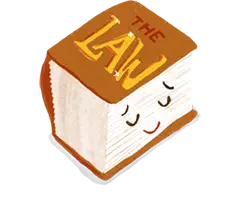Topic
Gambling
This page contains different parts of laws about Gambling, within the topic of Money and consumer rights.

Important laws about Gambling
Income Tax Act 2007
Tax rules for money earned from running gaming machines
CW 48: Income from conducting gaming-machine gambling
Gambling Act 2003
The Purpose of the Gambling Act 2003 is to make gambling fair and safe for everyone.
3: Purpose
Gambling Act 2003
What 'conduct' means in gambling law, including organising, managing, and helping with gambling activities
5: Extended meaning of conduct
Gambling Act 2003
Counting gaming machines with many player spots
6: Multi-terminal and multi-player gaming machines
Gambling Act 2003
What it means to have a big say in how a casino is run
7: Meaning of significant influence in casino
Gambling Act 2003
The Government can ask you for information to check if you have too much control over a casino.
8: Secretary may seek information to assess influence
Gambling Act 2003
No gambling allowed, except when the law says it's okay
9: Gambling prohibited
More laws about Gambling
About this project
What is this project?
This project is an experiment to take difficult language, and make it easier to read and understand for everyone.
How do we do this?
What's our process for taking the law and turning it into plain language?
Why is the law written like it is?
Laws are often hard to read. They use a lot of words and language we don't usually use when we talk.
Should we use AI for this?
What are the good and bad sides of using AI?
Is this information the actual law?
We hope that this information will help people understand New Zealand laws. But we think that it's important you talk to someone who understands the law well if you have questions or are worried about something.
You can talk to Community Law or Citizen's Advice Bureau about your rights.
Remember that AI can make mistakes, and just reading the law isn't enough to understand how it could be used in court.
You can talk to Community Law or Citizen's Advice Bureau about your rights.
Remember that AI can make mistakes, and just reading the law isn't enough to understand how it could be used in court.




